
Get Carter is a 1971 British gangster film, written and directed by Mike Hodges in his directorial debut and starring Michael Caine, Ian Hendry, John Osborne, Britt Ekland and Bryan Mosley. Based on Ted Lewis's 1970 novel Jack's Return Home, the film follows the eponymous Jack Carter (Caine), a London gangster who returns to his hometown in North East England to learn about his brother's supposedly accidental death. Suspecting foul play, and with vengeance on his mind, he investigates and interrogates, regaining a feel for the city and its hardened-criminal element.

At Bertram's Hotel is a work of detective fiction by Agatha Christie and first published in the UK by the Collins Crime Club on 15 November 1965 and in the US by Dodd, Mead and Company the following year. The UK edition retailed at sixteen shillings (16/-) and the US edition at $4.50. It features the detective Miss Marple staying at an up-market hotel which serves as a front for a sophisticated gang of robbers.

Get a Clue is a 2002 Disney Channel Original Movie starring Lindsay Lohan as Lexy Gold, a teenage high school student who investigates a mystery after one of her teachers goes missing. The film premiered on the Disney Channel on June 28, 2002. It was directed by Maggie Greenwald and was written by Alana Sanko.
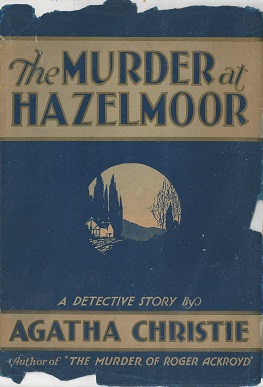
The Sittaford Mystery is a work of detective fiction by British writer Agatha Christie, first published in the US by Dodd, Mead and Company in 1931 under the title of The Murder at Hazelmoor and in UK by the Collins Crime Club on 7 September of the same year under Christie's original title. It is the first Christie novel to be given a different title for the US market. The US edition retailed at $2.00 and the UK edition at seven shillings and sixpence (7/6).

Why Didn't They Ask Evans? is a work of detective fiction by Agatha Christie, first published in the United Kingdom by the Collins Crime Club in September 1934 and in the United States by Dodd, Mead and Company in 1935 under the title of The Boomerang Clue. The UK edition retailed at seven shillings and sixpence (7/6) and the US edition at $2.00.

The Little Princess is a 1939 American drama film directed by Walter Lang. The screenplay by Ethel Hill and Walter Ferris is loosely based on the 1905 novel A Little Princess by Frances Hodgson Burnett. The film was the first Shirley Temple movie to be filmed completely in Technicolor. It was also her last major success as a child star. This film was the third of three in which Shirley Temple and Cesar Romero appeared together, second was Wee Willie Winkie (1937) and Ali Baba Goes to Town (1937).

Urban Legends: Bloody Mary is a 2005 American direct-to-video supernatural slasher film directed by Mary Lambert, and starring Kate Mara, Robert Vito, Tina Lifford, Ed Marinaro and Lillith Fields.

The Bellboy is a 1960 American comedy film written, produced, directed by and starring Jerry Lewis. It was released on July 20, 1960, by Paramount Pictures and marked Lewis's directorial debut.

Heaven Help Us is a 1985 American comedy-drama film starring Andrew McCarthy, Mary Stuart Masterson, Kevin Dillon, Malcolm Danare, Patrick Dempsey, and Stephen Geoffreys as a group of 1960s Brooklyn teenagers, with Jay Patterson, Wallace Shawn, John Heard and Donald Sutherland as the teachers and administrators at the private Catholic school the boys attend.

Casanova Brown is a 1944 American comedy romantic film directed by Sam Wood, written by Nunnally Johnson, and starring Gary Cooper, Teresa Wright, and Frank Morgan. The film had its world premiere in western France after the Allies had liberated those territories following the D-Day Invasion. The film is based on the 1927 novel An Unmarried Father by Floyd Dell and the 1928 play Little Accident by Dell and Thomas Mitchell, which had been previously filmed by Universal Pictures in 1930 as The Little Accident and in 1939 as Little Accident.
Up Against It is an unproduced script by Joe Orton, written in 1967 for the Beatles at the height of their fame.

Operation Mad Ball is a 1957 American military comedy from Columbia Pictures, produced by Jed Harris, directed by Richard Quine, that stars Jack Lemmon, Ernie Kovacs, Kathryn Grant, Arthur O'Connell, and Mickey Rooney. The screenplay is by Blake Edwards, Jed Harris, and Arthur Carter, based on an unproduced play by Carter.
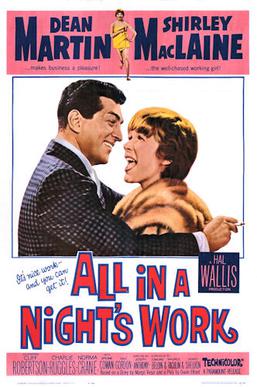
All in a Night's Work is a 1961 American Technicolor romantic screwball comedy film directed by Joseph Anthony and starring Dean Martin and Shirley MacLaine.
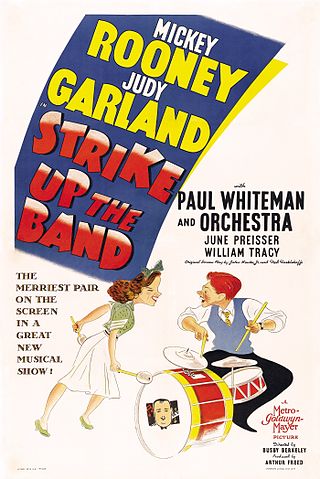
Strike Up the Band is a 1940 American musical film produced by the Arthur Freed unit at Metro-Goldwyn-Mayer. The film was directed by Busby Berkeley and stars Mickey Rooney and Judy Garland, in the second of a series of musicals they co-starred in, after Babes in Arms, all directed by Berkeley. The story written for the 1927 stage musical Strike Up the Band, and its successful 1930 Broadway revision, bear no resemblance to this film, aside from the title song.
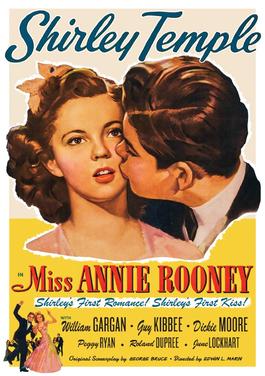
Miss Annie Rooney is a 1942 American drama film directed by Edwin L. Marin. The screenplay by George Bruce has some similarities to the silent film, Little Annie Rooney starring Mary Pickford, but otherwise, the films are unrelated. Miss Annie Rooney is about a teenager from a humble background who falls in love with a rich high school boy. She is snubbed by his social set, but, when her father invents a better rubber synthetic substitute, her prestige rises. Notable as the film in which Shirley Temple received her first on-screen kiss, and Moore said it was his first kiss ever. The film was panned.
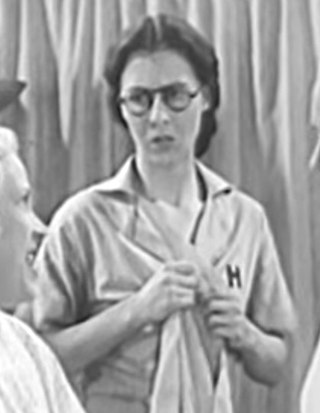
Mary Field was an American film actress who primarily appeared in supporting roles.
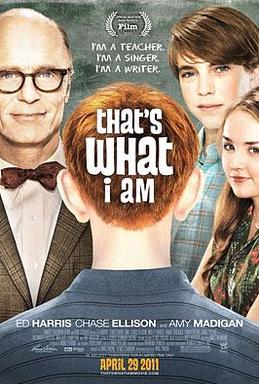
That's What I Am is a 2011 American comedy-drama film directed by Michael Pavone and starring Ed Harris and Chase Ellison. It received a limited release on April 29, 2011, and was later released on DVD on July 15, 2011.
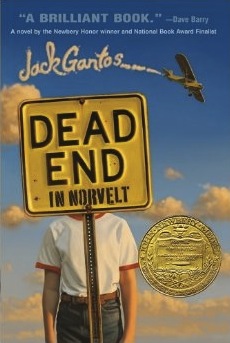
Dead End in Norvelt is an autobiographical novel by the American author Jack Gantos, published by Farrar, Straus, and Giroux in 2011. It features a boy named Jack Gantos and is based in the author's hometown, Norvelt, Pennsylvania. According to one reviewer, the "real hero" is "his home town and its values", a "defiantly political" message.
Judy Ann Nagel is a former World Cup alpine ski racer from the United States.
Slightly Married, also known as Strange Marriage, is a 1932 American pre-Code romantic comedy film directed by Richard Thorpe and starring Evalyn Knapp, Walter Byron and Marie Prevost.

















